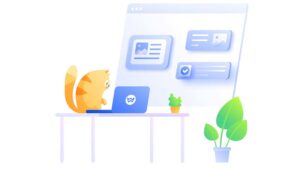REGULATION
Who is Responsible for Meeting Website Accessibility Compliance?
What is Accessibility Compliance? Website Accessibility Compliance
In short, website accessibility is the act of making sure websites are accessible and usable for everyone.
It ensures all users can perceive, understand, navigate, and interact with a website and encompasses all disabilities which may affect how a user experiences your website.
This includes auditory, cognitive, physical, neurological, and visual.
Accessibility also benefits users with temporary impairments, which may include – a user with a broken arm, or someone recovering from surgery.
It also includes:
* Situational impairments, such as: People on moving trains or People with limited internet connection.
* Environmental impairments, for example: Being in a brightly lit room or Not being able to play audio aloud.
Why Is Website Accessibility Important?
Ensuring the websites, we work on are accessible for everyone should be a primary concern for everyone in SEO, as well as the designers and developers we work with.
An accessible website helps all users:
* Easily navigate the site.
* Improve their experience.
* Find information they are looking for.
With the coronavirus pandemic causing the use of the web to further increase, the need for an accessible website has never been greater.
A report from Deque found that 62% of accessibility practitioners surveyed in March and April 2020 reported that “COVID-19 has raised the awareness and impact of accessibility on the digital channel.”
Accessibility is also important for user experience, satisfaction, and loyalty.
There are also legal implications to inaccessible websites.
With more laws for website accessibility, the pressure to be compliant is ever-present. Here’s what you need to know and the steps you can take now.
Were businesses and schools ready to meet the challenges for website accessibility compliance?
Adapting to new ways to work remotely or go to school was not always effortless, especially for persons with disabilities.
And meeting accessibility compliance historically took a back seat to just about every other business goal, creating a business risk.
Though remote work provided some with opportunities to continue to conduct business online, consumers and students quickly uncovered all the ways in which they could not do their work – preventing people from:
* Doing their jobs.
* Taking tests.
* Completing assignments.
* Holding meetings.
* Ordering supplies during quarantines.
This created frustration on top of an already difficult time.
Somebody needed to be responsible.
For digital marketers, the rumblings about website accessibility may be unimportant until a client receives a demand letter or worse.
Getting an ADA accessibility lawsuit creates alarm, followed by confusion over the next steps.
While the client is wrestling with this new expense, they may even ask why they were never made aware their website or mobile app was not accessible.
There have also been increasing concerns like:
* Who is responsible for building websites, software, and mobile apps that not only are accessible but adhere to the accessibility laws of the country or state they reside in?
* Is it ethical to create search engine marketing strategies for websites that are not tested for accessibility compliance?
* Why is accessibility testing not included in usability testing, user research, software testing, and split testing of landing pages?
* Are marketers, web designers, and developers legally liable if a client’s digital property fails to meet accessibility compliance requirements?
Who Is Responsible for Accessibility Compliance?
We are responsible for the content on our webpages.
This includes our videos, podcasts, forms, themes, and interactive elements.
It’s a lot to ask of beginners.
And for those who opt for ready-made websites, it’s a risk they may be unaware of.
Do yourself a favor and get an accessibility site audit done.
Hire a consultant or find an agency that offers accessibility testing as a service in addition to designing web sites or marketing them.
Add accessibility testing to your in-house projects.
It wouldn’t make any sense to produce products that are not ready to work for everyone.
Hire agencies that test with people with disabilities.
They are your best investment.
In 2021, you may be required to own an accessible website, mobile app, or online software application.
The best offense is knowing what you need to know.
Read more here.
[optin-monster slug=”em8z7q6hga9elmy1dbgb”]






